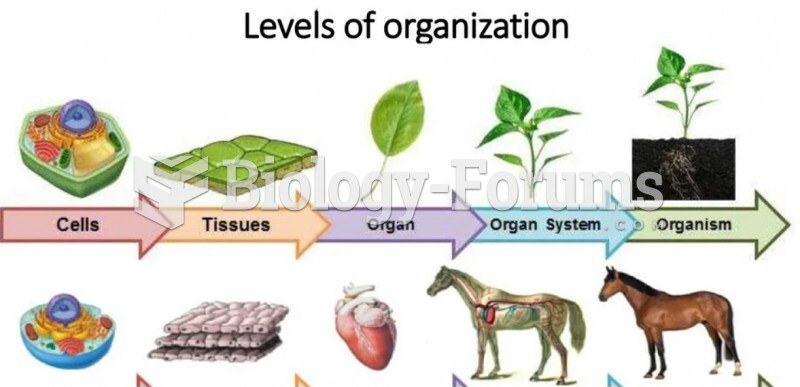This topic contains a solution. Click here to go to the answer
|
|
|
Did you know?
The word drug comes from the Dutch word droog (meaning "dry"). For centuries, most drugs came from dried plants, hence the name.
Did you know?
Thyroid conditions may make getting pregnant impossible.
Did you know?
Fewer than 10% of babies are born on their exact due dates, 50% are born within 1 week of the due date, and 90% are born within 2 weeks of the date.
Did you know?
In 1886, William Bates reported on the discovery of a substance produced by the adrenal gland that turned out to be epinephrine (adrenaline). In 1904, this drug was first artificially synthesized by Friedrich Stolz.
Did you know?
Illicit drug use costs the United States approximately $181 billion every year.
 (A) The levels of the spinal cord and spinal nerves. (B) Photograph of the spinal cord as it descend
(A) The levels of the spinal cord and spinal nerves. (B) Photograph of the spinal cord as it descend
 Spinal cord—levels of injury; A, areas of sensory function (dermatomes); B, areas of motor function.
Spinal cord—levels of injury; A, areas of sensory function (dermatomes); B, areas of motor function.





